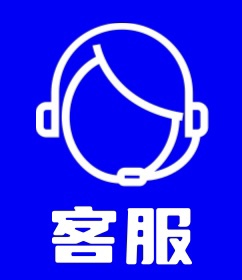1、 龙文教育您值得信赖的专业化、个性化辅导学校Unit 8-9综合复习Unit 8 When is your birthday?1. months: 月份: January 一月 February二月 March三月 April四月 May五月 June六月 July七月 August八月 September九月 October十月 November十一月 December十二月2. 基数词变序数词口诀: 基变序,有规律,尾部要加-th。 一、二、三,特殊记,结尾字母t, d, d (one-first, two-second, three-third) 八去t,九去e,ve要用f替 (eigh
2、teighth, nineninth, fivefifth, twelvetwelfth) y要改为ie (twentytwentieth, thirtythirtieth) 若是碰上几十几,只变个位就可以 (twenty-one-twenty-first, thirty-fourthirty-fourth)基数词 序数词 序数词缩写 基数词 序数词 序数词缩写 one first 1st sixteen sixteenth 16th two second 2nd seventeen seventeenth 17th three third 3rd eighteen eighteenth 18
3、th four fourth 4th nineteen nineteenth 19th five fifth 5th twenty twentieth 20th six sixth 6th twenty-one twenty-first 21st seven seventh 7th twenty-two twenty-second 22nd eight eighth 8th twenty-three twenty-third 23rd nine ninth 9th twenty-four twenty-fourth 24th ten tenth 10th twenty-five twenty-
4、fifth 25th eleven eleventh 11th twelve twelfth 12th thirty thirtieth 30th thirteen thirteenth 13th thirty-one thirty-first 31st fourteen fourteenth 14th forty fortieth 40th fifteen fifteenth 15th fifty fiftieth 50th 3. date of birth(出生日期)= birthday4. Happy birthday! 生日快乐!5. 问年龄:用how old +be + 主语? 答:
5、主语 + be + 基数词(years old) (1) How old are you? Im fifteen(years old) 你多大了?我15岁。 (2) How old is the baby? He is 10 months old.这个婴儿多大了?他10个月大。6. When is your birthday? 你的生日是什么时候?7. at / on / in 表时间“在” (1)at 通常表在某个点时间。at 8:00 在8:00 at 9:25 在9:25 (2) on通常表在某一天或某一天的上/下午、晚上。on September 1st 在9月1日 on a cold
6、 morning 在一个寒冷的上午 (3)in表在某一周/月/季节/年/世纪等。in 1979 在1979年 in September 在9月份 in spring在春天表时间at on in(4)固定词组at dawn在黎明at noon在中午 at night在晚上 at sunrise在黎明/日出时at Christmas在圣诞节 at lunch time在吃中饭时 at this / that time在这/那时 at the age of 20在20岁时 on weekend(s)在周末 in the morning / afternoon / evening在上午/下午/晚上8.
7、 see you./ Goodbye / Bye/ Bye-bye再见 see you later回头见;过一会儿见。see you tomorrow/next week. 明天见 / 下周见see you then. 到时见。9. have a good time = enjoy oneself(oneself要随主语的变化而变化) = have fun They are having a good time. = They are enjoying themselves.= They are having fun. 他们正玩得高兴。10.各种节日的英语 1月1日元旦(New Years D
8、ay) 2月14日情人节(Valentines Day) 3月8日国际妇女节(International Womens Day) 3月12日中国植树节(China Arbor Day) 4月1日愚人节(April Fools Day) 4月5日清明节(Tomb-sweeping Day) 5月1日国际劳动节(International Labour Day) 5月4日中国青年节(Chinese Youth Day) 6月1日 国际儿童节(International Childrens Day) 8月1日中国人民解放军建军节(Army Day) 8月12日国际青年节(International
9、Youth Day) 9月10日中国教师节(Teachers Day) 10月1日国庆节(National Day) 10月31日万圣节(Halloween) 12月25日圣诞节(Christmas Day) 5月第二个星期日母亲节(Mothers Day) 6月第三个星期日父亲节(Fathers Day) 10月的第二个星斯一加拿大感恩节(Thanksgiving Day) 11月最后一个星期四美国感恩节(Thanksgiving Day) 农历节日 农历正月初一春节(the Spring Festival) 农历正月十五元宵节(the Lantern Festival) 农历五月初五端午节
10、(the Dragon-Boat Festival) 农历八月十五中秋节(the Mid-Autumn Festival) Unit 9 My favorite subject is science.1. Whats your favorite subject? 你最喜欢的学科是什么?=What subject do you like best? My favorite subject is math. 我最喜欢的学科是数学。= I like math best. (1)Whats your favorite? = Whatdo you like best? My favorite is .
11、=I like best.(2) favorite前一定要用形容词性物主代词或名词所有格一起来修饰后面的名词。不可根据汉语意思而用人称代词如I, He 等。Whats Ginas favorite subject? Gina最喜欢的学科是什么? Her favorite subject is math. 她最喜欢的学科是数学。 (3)favorite(美)亦可拼为favourite(英) (4)favorite n. 最喜欢的人或物(复数形式是favorites) These clothes are my favorites.这些衣服是我最喜欢的。 Which color is your fa
12、vorite? 哪种颜色是你最喜爱的?2. Why do you like math? 你为什么喜欢数学? Because its interesting. 因为它很有趣。3. Hows your day? 今天过得如何? Its OK.还行。 Great! 棒极了!4. have + 学科:上某一学科的课。 have English 上英语课 have a class / lesson 上课 have breakfast / lunch / dinner 吃早饭 / 中饭/ 晚饭 have a soccer game 举行足球比赛 have a school trip 开展校外活动 have
13、 a party 举行派对;举办聚会5. Thats for sure.的确如此。6. be busy with sth / be busy doing sth 忙于做某事 Im busy with my homework = Im busy doing my homework 我在忙着做家庭作业。 He is busy writing a letter. 他在忙着写信。7. interesting / funny Interesting“有意思的;有吸引力的”,指引起理性的或智慧的兴趣。Funny“逗乐的;有趣的;使人快乐的”,强调“滑稽可笑的” English is interesting
14、.英语很有趣。 I find this book interesting. 我发现这本书很有意思。 This is a funny movie.这是一部搞笑的影片。 This game looks fun. 这个游戏看起来好玩。8. from to “从到”,用来表述时间、地点等范围。 from Monday to Friday 从周一到周五 from Beijing to Shanghai 从北京到上海9. for + 一段时间:表(某个动作)持续了多长时间。 I played with him for two hours. 我和他玩了两个小时。10.Is that OK with you?
15、那对你来说合适吗?补充:1. Its Tuesday, November 11. 今天是11月11日,星期二。 (1)日期和星期同时表达时,通常先说星期后说日期。 (2)句中it用来表示时间。2. be strict with sb. 对某人要求严格 be strict in sth. 对某事(在某方面)要求严格 (1)Our English teacher is very strict with us.我们的英语老师对我们要求很严格。 (2)Our English teacher is very strict in our homework.我们的英语老师对我们的家庭作业要求很严格。3. p
16、lay with和一起玩4. look, see, watch, read (1)look为不及物动词,指看的过程,不一定看见。后接宾语须加at。 (2)see 用作及物动词。后面直接接宾语。“看见,看到”强调看的结果。“看医生”“看电影”常用这个词。 He looks at the blackboard, but cant see the words.他看了看黑板,但看不见这个词。 see the doctor看医生 see a film/movie看电影 (3)watch为及物动词。“观看,注视”指非常仔细全神贯注地看。“看电视”“看比赛”习惯用这个词。 watch TV看电视 watch
17、 the football game看足球比赛 (4)read本义为“读,朗读”,“看书,看报,看杂志”常用这个词 read a book看书 read the e-mail 读这封电子邮件5. 辨析interesting与interested (1)interesting可作表语,指某人/事/物本身有趣;也可作定语修饰人或物 The book is interesting. 这书很有趣。 (作表语) I have an interesting book.我有本有趣的书。(作定语) (2)interested用于be/get/become interested in(对感兴趣)这一结构中。 H
18、e is interested in playing football.他对踢足球感兴趣。6. on weekends在周末7. play the guitar 弹吉他 play erhu拉二胡 play chess 下国际象棋 play soccer 踢足球 (1)演奏某种乐器,乐器名词前要用the(汉语拼音组成的名词除外) (2)球类/棋类运动,名词前不用冠词8. join / take part in 参加 join多指参加某个团体或组织,成为其中的一员。take part in多指参加某项活动,并在其中起一定的作用。 join the Party入党 join the army参军 t
19、ake part in the meeting参加会议 join in(参加某项活动) = take part in join sb.加入到某人当中 join us加入到我们当中9. 辨析speak,say, talk, tell (1)speak“说”,“讲话”。强调说的能力。 作及物动词,只能接某种语言作宾语:speak + 语言 “说某种语言”。 作不及物动词,“讲话,发言” She is speaking.她正在讲话/发言。 (2)say“说”,后面跟说的内容。 I can say ABC.我会说ABC. say hello to sb.向某人问好。 say sorry to sb.向
20、某人道歉。 say it in English用英语说(它)。 (3)talk“谈论,交谈”。 talk to sb.对某人说话 talk with sb同某人交谈 talk about/on 谈论 (4) tell“告诉,讲述”。 tell sb. sth. = tell sth. to sb. 告诉某人某事 tell sb. about sth.告诉某人关于某事 tell sb. to do sth.告诉某人去做某事 tell sb. not to do sth. 告诉某人不要做某事 tell a story 讲故事 tell a lie 撒谎 tell the truth讲实话10. H
21、elp Wanted寻求帮助 wanted常用于招聘或启事等的标题Teachers Wanted招聘教师 Waiters Wanted招聘服务员11. be good with sb 和某人相处得好(同义get on well with sb.) be good to sb对某人好 My teacher is good to me. be good for对有益 Learning English well is good for us. be good at擅长 Lucy is good at English.12. help 1) n. 帮助 Thanks for your help.谢谢你的帮助。 2) v. 帮助help with sth. 帮着做某事 Please help w
